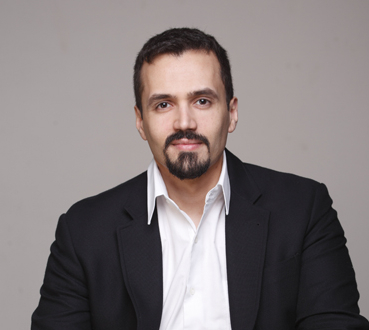By Testriono
JAKARTA: Many scholars are pessimistic that Tunisia’s Jasmine Revolution and the political transition in Egypt will successfully bring about democracy in these countries, and worry that there is a significant risk of Islamic political groups, some with radical interpretations of sharia (Islamic principles of jurisprudence), taking on an inordinately influential role during the political transition.
Is there any truth to the argument that Islam is incompatible with democracy?
The Indonesian example suggests otherwise.
Indonesia underwent a major political transition that started with the toppling of a 32-year-old authoritarian regime during the Reform movement of 1998, similar to the situation in Tunisia and Egypt today.
The Indonesian transition to democracy indicates that Islam, as a religion and culture, is indeed compatible with democracy. The support for the concepts of democracy and the nation-state by Muslims in Indonesia contradicts the notions of those scholars who believe that Islam and democracy are incompatible and therefore Muslim-majority countries are doomed to autocratic rule.
Although some Muslim-majority countries have been troubled by radical Islamic political groups, Indonesia has experienced a peaceful political consolidation, which has included groups with diverse political platforms. In the parliament, the Prosperous Justice Party (PKS), which is considered to be the largest post-reform Islamic political party, tackles various national agendas together in collaboration with secular parties.
Indonesia does face demands by some groups to implement strict interpretations of Islamic law in various regions, most notably in Aceh, where women are obliged to wear a headscarf (locally called the jilbab) under a by-law on Islamic dress. Such actions have become rallying points for other Islamic political groups to do the same elsewhere. However, the majority of Indonesian Muslims hold dearly to the religious rights of all groups as protected under the constitution and have not endorsed the formal implementation of a conservative type of Islamic law.
While this proves that Islam and democracy can coexist in Indonesia, does it necessarily lead to a similar conclusion in the Middle East and North Africa?
Robert W. Hefner, an anthropologist from Boston University, credits large Indonesian Islamic organizations such as Nahdlatul Ulama (NU) and Muhammadiyah (with approximately 80 million and 14 million members respectively) with making a difference in Indonesia. Their social activities, such as establishing schools, hospitals, orphanages and other social institutions, have set examples for how to balance Islamic principles, democracy and nation-building. Their activists also have been engaged in activities such as an anti-corruption movement, creating good governance, and helping develop public policy and budgeting in local governments.
Some scholars credit the Indonesian cultural tendencies of conflict avoidance. For example, Indonesian scholar Taufik Abdullah says that the large sizes of Islamic organizations in Indonesia, as opposed to being splintered into smaller organizations, have made Indonesian Muslims appear more unified, adopting popular, inclusive religious interpretations as they avoid religious-based controversies or conflict.
An Islamic scholar from Indonesia, Azyumardi Azra, says that Muslims in Indonesia emphasize the accommodative nature of Islam, which is why they easily accepted democracy, human rights and other relatively new ideas.
The Indonesian experience offers two insights for emerging democracies in the Middle East and North Africa: one, Islamic civil society organizations can play an active role in strengthening democratic states; and two, the diversity within Islam can be a strength which can encourage the acceptance of change and societal differences, and inspire not only individual piety and political ideals, but also the type of humanitarian initiatives necessary for nation-building.
Testriono ([email protected]) is a researcher at the Center for the Study of Islam and Society (PPIM) at the State Islamic University (UIN) Syarif Hidayatullah Jakarta. This article was written for the Common Ground News Service (CGNews), www.commongroundnews.org.



